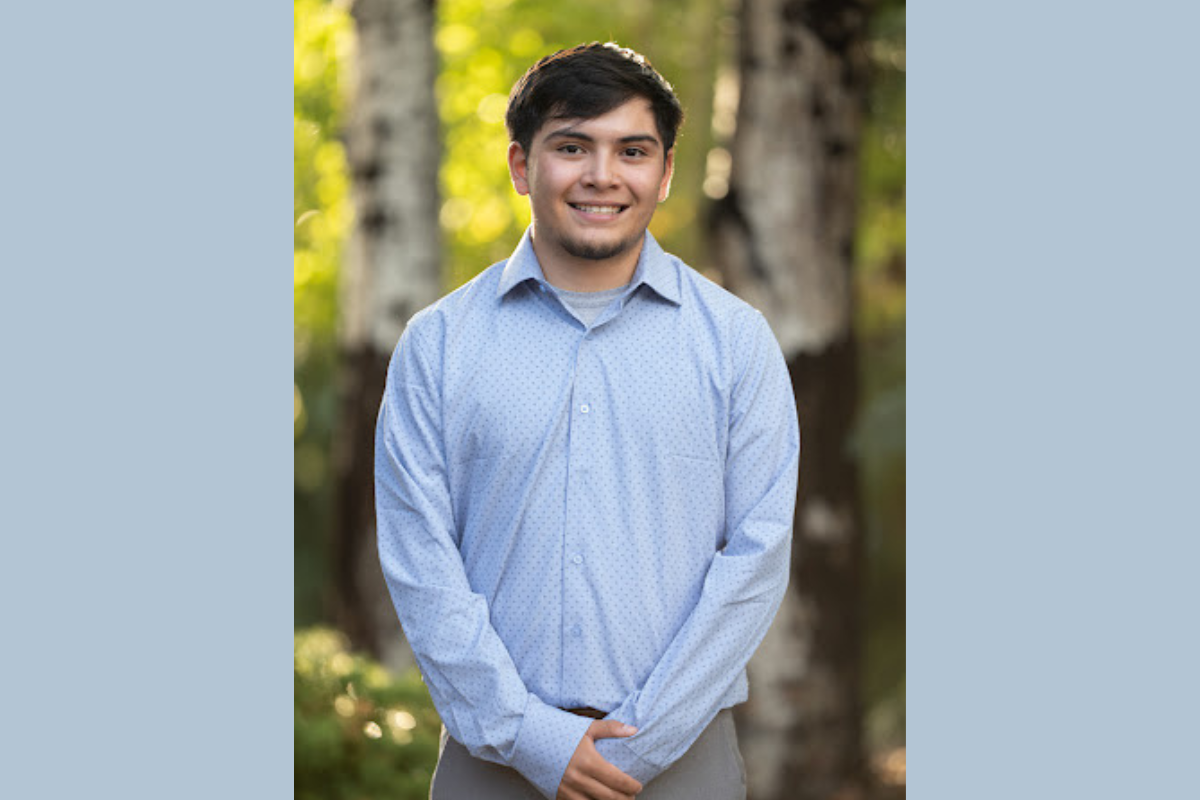Following his time as an intern with Every Learner Everywhere, Joe Rendon, a senior at Fort Lewis College in Colorado, would like to work with faculty helping to design courses that are more equitable, including for the 65 percent of its students who are Indigenous.
For example, he’d like to design a course for students whose first language isn’t English, “maybe by taking academic language down a notch so students have a better opportunity to understand what is being taught to them.”
He says equity depends on closing the disconnect the institution or instructors may have with students. One particular disconnect he notes is the impact on Indigenous students when every syllabus at Fort Lewis acknowledges that the institution used to be an Indian Boarding School.
“While that might be interesting for students from Denver who don’t know that history,” Rendon says, “there isn’t a need to recollect that trauma and continuously bring it into the classroom for the Native students. They want to focus on where they are now, as individuals and as a people. Focusing on that trauma isn’t equitable and doesn’t provide a safe space for those Native students.”
Fort Lewis is one of the 37 Native-American Serving Nontribal Institutions (NASNTI) that, along with Tribal Colleges and Universities (TCU), are an important part of the college experience for Indigenous students. Rendon’s experience at Fort Lewis has been informing his research project during his Every Learner internship in fall 2023 on what NASNTIs and historically white institutions can learn from TCUs about creating equitable learning environments.
For example, Indigenous communities can have a strong sense of relational ethics, while in Rendon’s experience, classrooms in historically white institutions sometimes don’t even prioritize knowing who individual students are.
Rendon isn’t Indigenous but grew up in a community with a large Indigenous population and hopes he can conduct his research with sensitivity. “A lot of people who have done this type of research before have never been in a Native American house or attended a Powwow or Native American feast,” he says. “Where they have fallen short on their research is that lack of connection to the actual people they are researching.”
From shaky legs to confidence
Rendon is majoring in economics and minoring in philosophy and has recently become interested in the possibility of teaching. He’s a teaching assistant for composition courses and works as a specialist at the campus academic support center, focusing on peer education, retention, and the first-year student experience.
“I love being in the classroom,” Rendon says. “I love watching the transformation that takes place in students when they go from having nervous, shaky legs to confidence in themselves. I like to connect with them so their success is a shared success.”
He says he used to not like school and that “the real turn for me was knowing that people cared about me personally, not just as a student, and that there was someone to remind me of what it was possible for me to accomplish, even if it was hard. Students want to be seen and understood.”
Teaching with compassion
After college, Rendon is also interested in sustaining his work running clinics for a fly fishing guide service, which he says has more in common than one might expect with the values that drive him as a student, teaching assistant, and researcher.
“Where I live in Northern New Mexico, there isn’t a lot of opportunity for young people to be self-sufficient,” Rendon says, which can lead to them choosing paths that get them into trouble.
Fly fishing was a lifeline for Rendon during the early part of the Covid-19 pandemic, when college felt like a dream that would never become a reality. Most of his savings was spent living through the pandemic and he began to lose his confidence in himself.
“Fly fishing has given me a lot,” Rendon says. “Before my dad passed away, this was a hobby we shared. Being on the water is a connection to him and to nature. I approach teaching fly fishing the same way I approach teaching in the classroom. Everyone learns differently, but when you teach with compassion and understanding, everyone can succeed. You’re teaching people a lot more than just fly fishing.”
Sign up for our newsletter to learn about future internship opportunities

